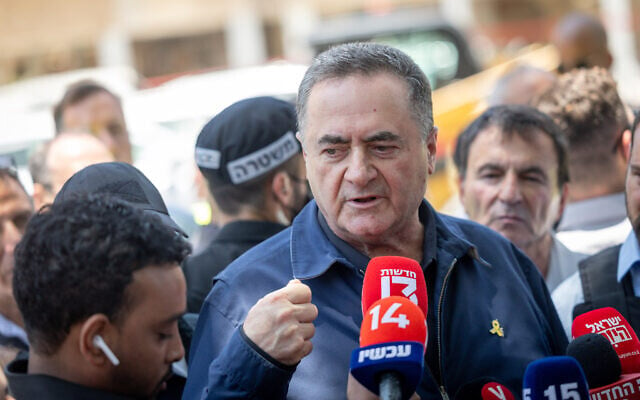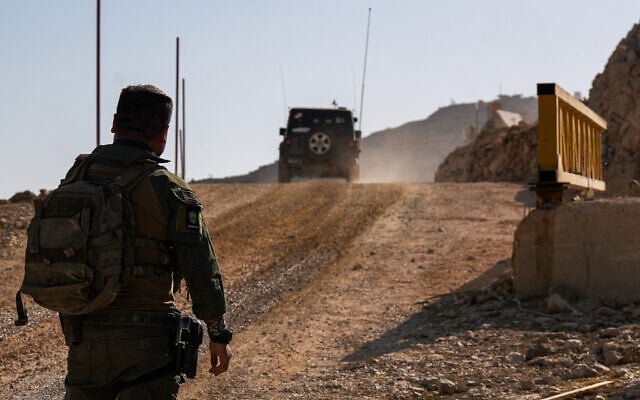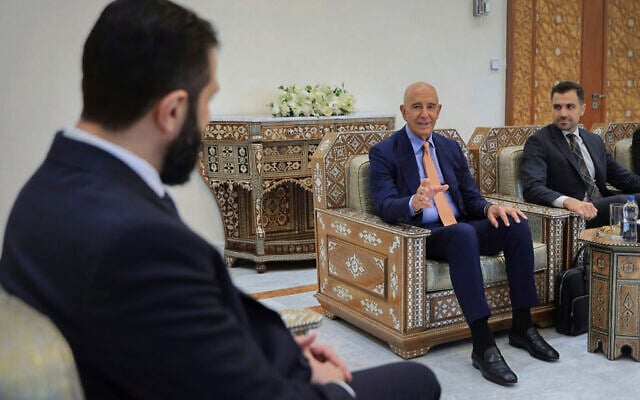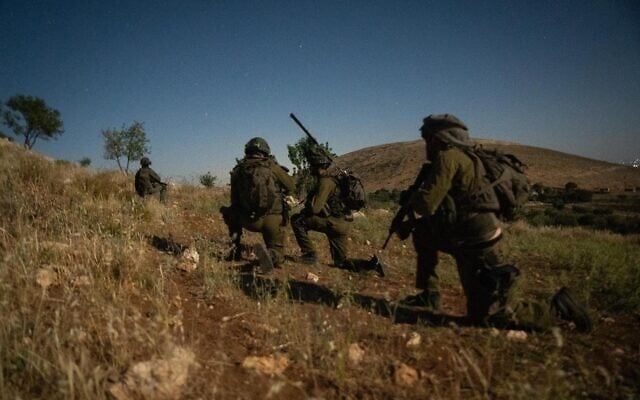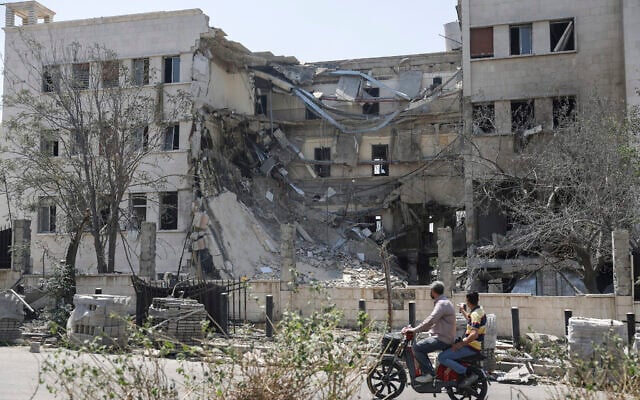


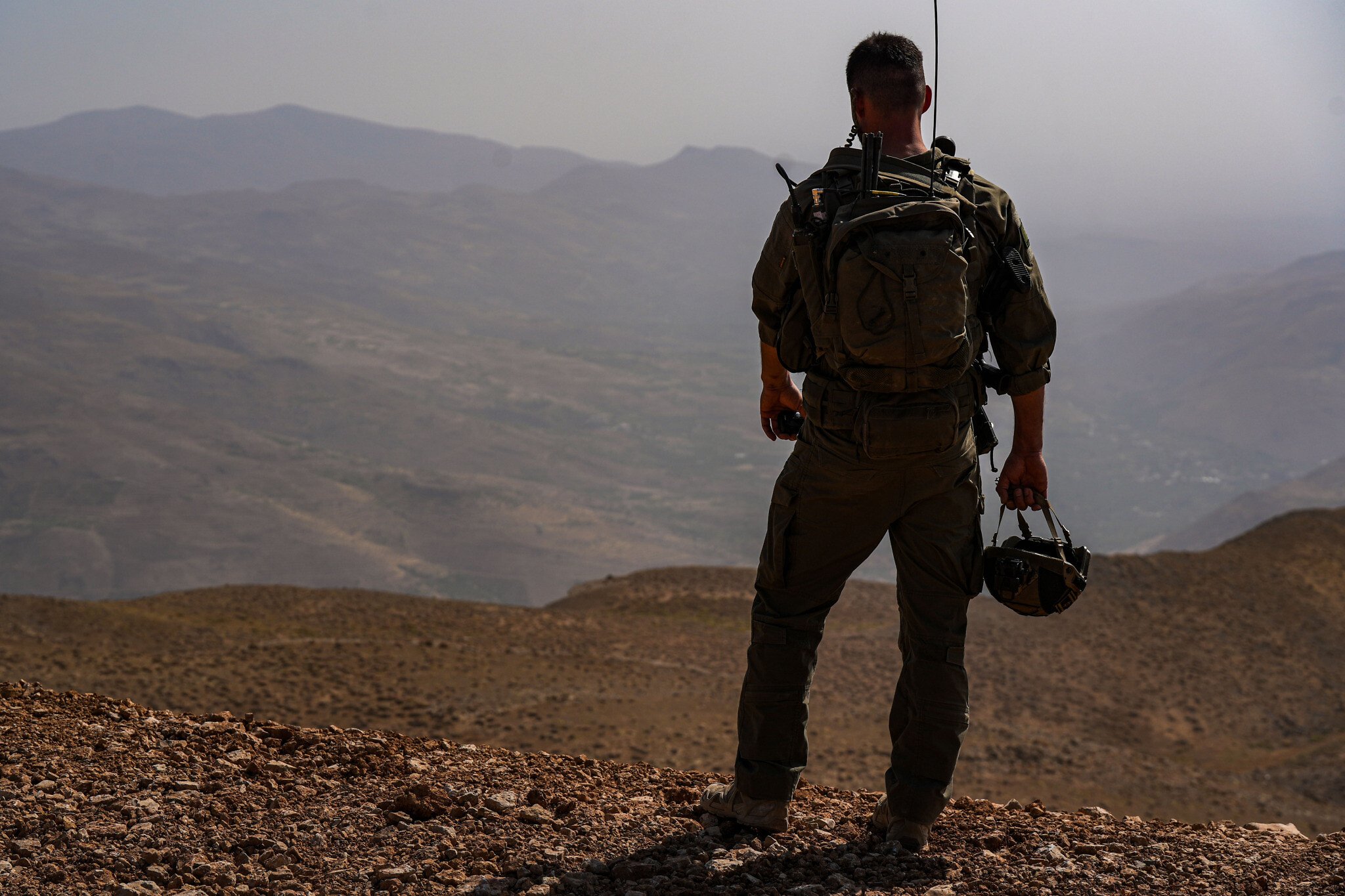
Israel said on Tuesday it would not retreat from positions on the Syrian side of Mount Hermon and in other areas across the border, amid reports of advanced talks between Jerusalem and Damascus on reaching security arrangements along the sensitive frontier.
The comments from Defense Minister Israel Katz came a day after Syria condemned what it said was a “dangerous escalation” by dozens of Israeli troops who allegedly carried out an incursion east of the Mount Hermon foothills.
Syrian media reported fresh violence on Tuesday morning as Israel allegedly shelled a home in the village of Tranjah, north of Quneitra near the border with the Golan Heights.
Reports said one person was killed in the attack on a home in the village, describing the fatality as a “young man,” indicating he was not a member of Syria’s security forces. Pictures showed damage to part of the second floor of what appeared to be an unoccupied home.
There was no comment from the Israel Defense Forces on the alleged strike.
Writing on X, Katz said “the IDF will remain on the summit of [Mount] Hermon and in the security zone that is vital to defending communities in the Golan and Galilee from threats emanating from the Syrian side.”
Israel’s need to maintain a presence there is a “central lesson from the events of October 7,” said the minister, who has previously vowed to keep troops atop Mount Hermon indefinitely.
Thousands of Hamas terrorists invaded Israel on October 7, 2023, catching the military off guard as they rampaged through communities near the Gaza border. Some 1,200 people, mostly civilians, were killed in the attacks, while 251 were abducted into Gaza.
According to Israel, a similar invasion of the Galilee from Lebanon had been planned by the Iran-backed Hezbollah terror group.
Katz added that Israel would also continue to defend the Druze community in Syria.
Israeli troops captured the Syrian peak of Mount Hermon following the fall of former dictator Bashar al-Assad late last year and have remained there since. Soldiers have also been deployed to several posts just inside southern Syria, mostly within a UN-patrolled buffer zone on the border between the countries.
Troops have been operating in areas up to around 15 kilometers (some nine miles) deep into Syria, aiming to capture weapons that Israel says could pose a threat to the country if they fall into the hands of hostile forces.
While aligned against Hezbollah and other Iran-backed groups that threatened Israel’s north under Assad, Jerusalem has expressed distrust regarding Syria’s new government, which is led by former jihadists. Nonetheless, it has engaged in US-brokered talks aimed at reaching understandings with Damascus and de-escalating potential conflicts, which some believe could pave the way for broader normalization talks.
On Monday, Syrian President Ahmed al-Sharaa told Arab journalists that his government was in “advanced” negotiations with Israel on a security agreement. He told Sky News Arabic that any deal would be based on ceasefire lines that have formed the de facto border between the countries since 1974.
Sharaa later discussed developments in Syria and the region with US Special Envoy for Syria Thomas Barrack in Damascus. On Sunday, Barrack was in Israel for talks with Prime Minister Benjamin Netanyahu on Syria and Lebanon.
Barrack told US news outlet Axios that Israel and Syria “have mutual intent and desire but at the moment, there is still more work to do” on a security agreement.
“Constructive dialogue between these nation states is the on ramp to a long-lasting understanding that will be the preface to stability and prosperity in the region,” he added.
Earlier in the day, Syria’s Foreign Ministry condemned what it alleged was an attempt by Israel to expand its sphere of control around Mount Hermon, saying 60 troops had deployed on a strategic hilltop that overlooks Beit Jinn. Residents claimed Israel arrested six Syrians.
An Israeli military spokesperson said troops carried out routine operational activity in an area of southern Syria but did not operate in Beit Jinn, an area some 7 kilometers (4.3 miles) east of the border with Israel, where troops have carried out raids in the past.
The Israeli military said they made no arrests during their activity in southern Syria but they detained one person for questioning after some suspects were spotted approaching the area in a manner the military deemed as a threat to the troops.
“This dangerous escalation is considered a direct threat to regional peace and security,” the Foreign Ministry said in a statement.
The US has been working to calm tensions between Israel and Syria since the IDF intervened on behalf of Syria’s Druze community last month, bombing Damascus’s Defense Ministry headquarters and striking regime forces that Israel said were poised to carry out mass killings in the Druze town of Sweida.
According to Channel 12 news, a deal between Jerusalem and Damascus could see Syria’s side of the Golan Heights demilitarized, with the Syrian army blocked from operating in sensitive areas. Israel also wants strategic weapons barred from entering Syria and the establishment of a humanitarian corridor to Druze areas of southern Syria. In return, Syria would receive reconstruction assistance from the US and Gulf states.
The humanitarian corridor was discussed last week in trilateral talks between Barrack, Israeli Strategic Affairs Minister Ron Dermer and Syrian Foreign Minister Asaad al-Shaibani, Axios reported Monday.

